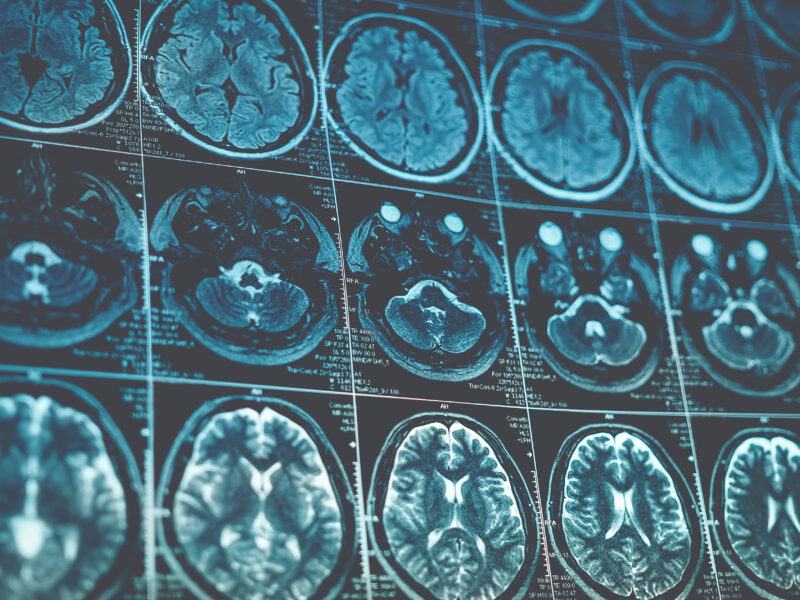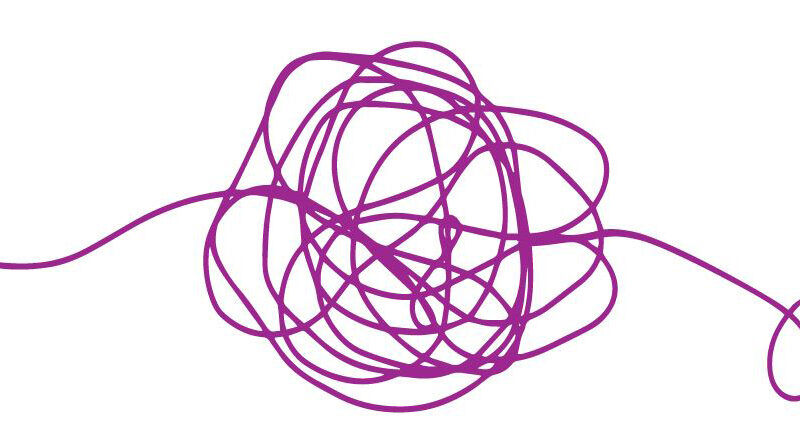Deep Brain Stimulation Ameliorates Symptoms of Genetic Movement Disorder
Deep Brain Stimulation Ameliorates Symptoms of Genetic Movement Disorder https://pediatricsnationwide.org/wp-content/themes/corpus/images/empty/thumbnail.jpg 150 150 Mary Bates, PhD Mary Bates, PhD https://secure.gravatar.com/avatar/c6233ca2b7754ab7c4c820e14eb518c8?s=96&d=mm&r=g- May 02, 2023
- Mary Bates, PhD
First report of DBS for management of tremor in a treatment-resistant AIFM1-related disorder.
In a new case series, researchers from Nationwide Children’s report using deep brain stimulation (DBS) to help manage tremor due to a genetic movement disorder in two brothers. The report, published in the journal Pediatric Neurology, suggests DBS may be useful in treating medically resistant tremor in pediatric patients with related disorders.
Variants in the AIFM1 gene result in a spectrum of X-linked neurological disorders in which males are primarily affected. One of these, Cowchock syndrome, is characterized by sensorineural hearing loss, cerebellar ataxia, peripheral axonal neuropathy, and delayed motor development.
The brothers treated in the new report were patients of Emily de los Reyes, MD, a pediatric neurologist at Nationwide Children’s. Both individuals presented with a progressive, complex movement disorder consistent with Cowchock syndrome, including a disabling tremor. Next-generation sequencing identified a novel maternally inherited AIFM1 variant in the two brothers. In addition, these patients were treatment resistant, as they did not demonstrate sustained clinical improvement with medications that have shown some efficacy in other AIFM1-related disorders, including levodopa and riboflavin.
In collaboration with physicians at West Virginia University, Dr. de los Reyes and colleagues decided to try using DBS to relieve some of the brothers’ symptoms.
“DBS has historically been used to treat adult patients with movement disorders, primarily Parkinson’s disease,” says Jude Tunyi, and MD/PhD student at The Ohio State Medical Scientist Training Program and NIH Oxford-Cambridge Program and lead author of the case series. “It has not been used as much in children, and not for this disorder.”
The team report that DBS of the ventral intermediate thalamic nucleus resulted in sustained improvements in tremor control and quality of life for both patients.
“Some of these improvements may sound small,” says Dr. de los Reyes, who is also a professor of clinical pediatrics and neurology at The Ohio State University College of Medicine. “But having the ability to brush your teeth or eat independently can tremendously impact your quality of life.”
Going forward, the researchers suggest that DBS may be an effective way to help improve quality of life for other young patients, especially those who have a similar progression of motor symptoms, have been resistant to other treatments, and have nothing that would medically exclude them from having the procedure done.
“In children with rare diseases without any immediately available treatment, I think we should consider surgical approaches such as DBS to alleviate symptoms,” says Dr. de los Reyes.
Reference:
Tunyi J, Abreu NJ, Tripathi R, Mathew MT, Mears A, Agrawal P, Thakur V, Rezai AR, Reyes EL. Deep Brain Stimulation for the Management of AIFM1-Related Disabling Tremor: A Case Series. Pediatr Neurol. 2023 Feb 15;142:47-50. doi: 10.1016/j.pediatrneurol.2023.02.007.
About the author
Mary a freelance science writer and blogger based in Boston. Her favorite topics include biology, psychology, neuroscience, ecology, and animal behavior. She has a BA in Biology-Psychology with a minor in English from Skidmore College in Saratoga Springs, NY, and a PhD from Brown University, where she researched bat echolocation and bullfrog chorusing.
-
Mary Bates, PhDhttps://pediatricsnationwide.org/author/mary-bates-phd/December 27, 2016
-
Mary Bates, PhDhttps://pediatricsnationwide.org/author/mary-bates-phd/
-
Mary Bates, PhDhttps://pediatricsnationwide.org/author/mary-bates-phd/
-
Mary Bates, PhDhttps://pediatricsnationwide.org/author/mary-bates-phd/
- Post Tags:
- Genetics
- Neurology
- Neurosciences
- Posted In:
- Clinical Updates
- In Brief
- Research
- Uncategorized






